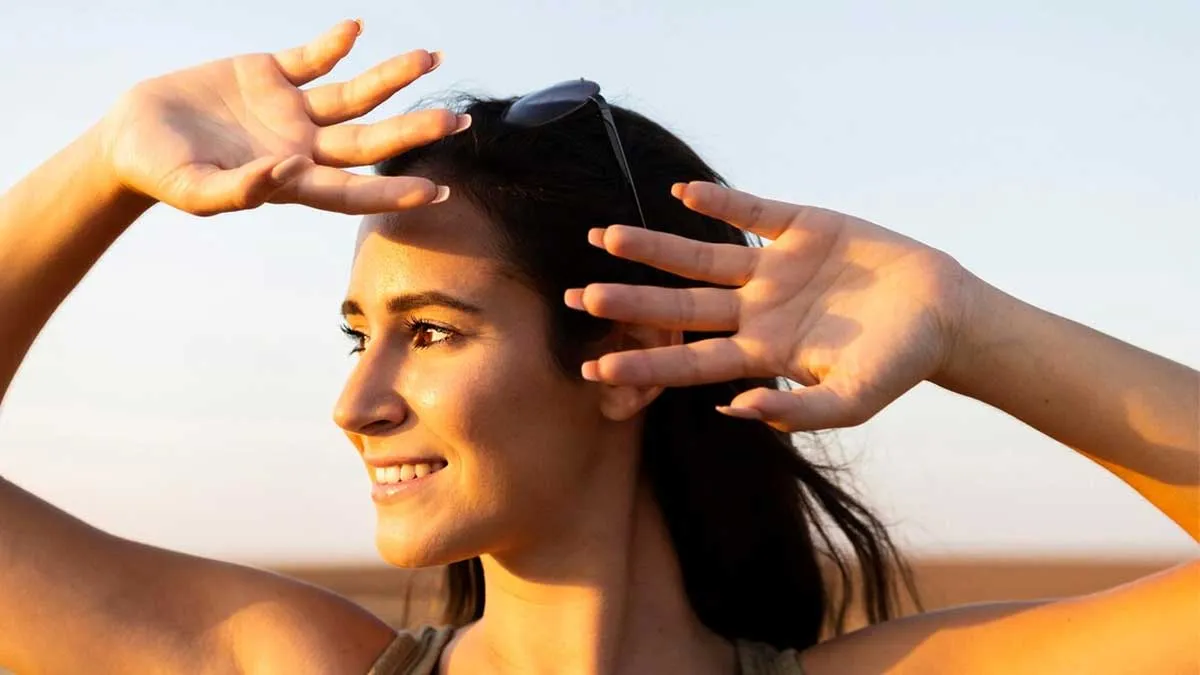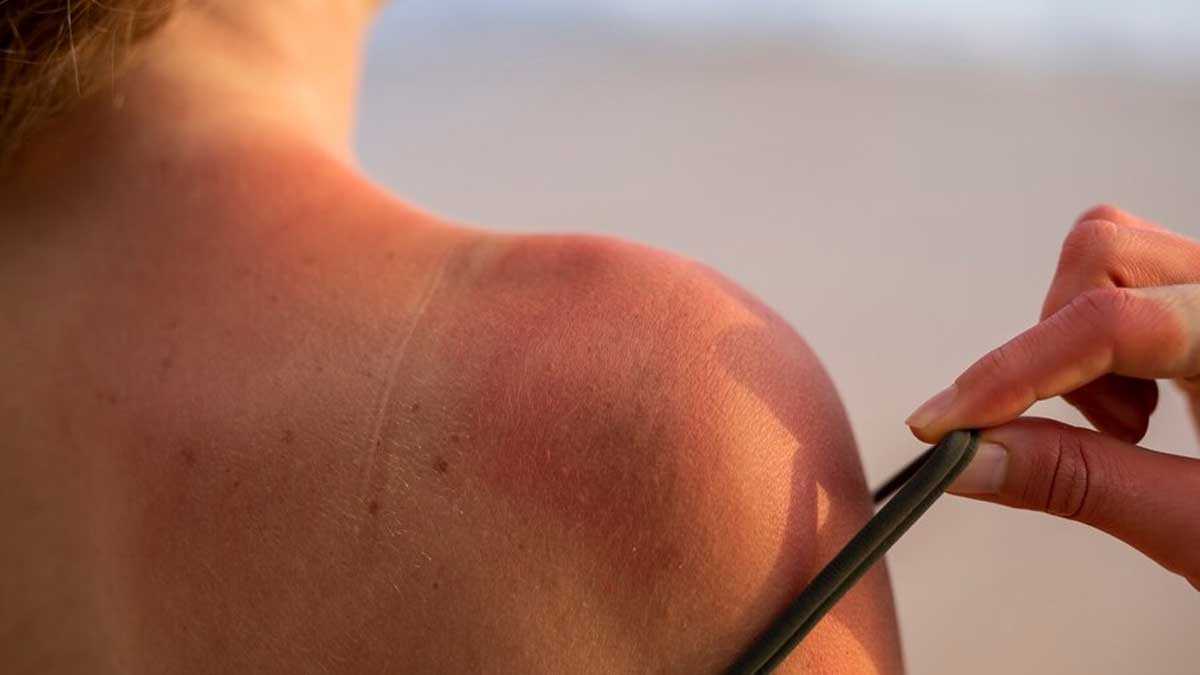
We all enjoy basking in the sun, be it chilling by the beach or getting some on the way to work or otherwise. It feels nice on our skin and provides us with a healthy dose of vitamin D, which experts state is deficient in most Indians. But did you know that those nice rays have a not-so-nice consequence and can actually speed up the ageing process of your skin?! Well, as intimidating as it sounds, we're here to simplify it for you so you'll understand what's happening and how to stay safe.
Table of Content:-
What Is The Relationship Between The Sun And Our Skin
Think of your skin like a delicate piece of fabric. Over time, things in the environment can wear it down. One of the biggest culprits for this wear and tear is the sun's ultraviolet (UV) radiation two main types of UV rays that reach the Earth:
UVA rays: These are sneaky invaders. They can penetrate deep within your skin and are a top reason for premature ageing. UVA rays ruin collagen and elastin, the fibres that cause your skin to be firm and smooth. Collagen and elastin damage contribute to wrinkles, sagging, and age spots.
UVB rays: These are the stronger rays that cause sunburn. A terrible sunburn is an obvious indicator of harm, but even small doses of UVB exposure throughout your life can lead to skin ageing and, more importantly, put you at a higher risk for skin cancer.
Also Read: Just 5 Minutes Of Junk Food Ads Can Trigger Kids To Consume More Calories Daily, Study Finds

What Does Sun-Damaged Skin Look Like?
Sun damage doesn't occur overnight. It's an ongoing process, but you may begin to notice some of these signs along the way:
Wrinkles: Particularly around the eyes, mouth, and forehead.
Age spots (sunspots or liver spots): Flat, dark marks that show up on sun-exposed areas of your body, such as your face, hands, and chest.
Freckles: Some individuals have freckles by nature, but increased sun exposure causes them to darken and become more noticeable.
Dry and rough skin: Sun damage can cause your skin to become dry and leathery.
Sagging skin: Collagen and elastin breakdown can cause loss of firmness.
Uneven skin tone: You may see spots of lighter or darker colour.
Can You Protect Yourself?
The good news is that you don't need to stay indoors to prevent sun-induced ageing. There are easy and effective means to guard your skin:
1. Wear Sunscreen Daily
This is the golden rule! Select a broad-spectrum sunscreen with an SPF of 30 or more. "Broad-spectrum" means it guards against both UVA and UVB rays. Apply it liberally to all skin that will be exposed to the sun 15-30 minutes before going outside, even on cloudy days. Reapply every two hours, particularly after swimming or sweating.

2. Seek Shade
In India, during the peak summer months, the sun is strongest between 10 a.m. and 4 p.m., therefore, it is suggested that you seek shade under trees, umbrellas, or canopies if standing or waiting.
3. Wear Protective Clothing
Wear long-sleeved shirts, pants, wide-brimmed hats, and sunglasses. Darker, tightly woven materials provide greater protection.
4. Don't Forget Your Eyes
UVA/UVB blocking sunglasses will shield your eyes from sun-induced damage, also responsible for prematurely ageing the eye area.
5. Be Extra Careful During Peak Hours and Around Reflective Surfaces
The strongest sun rays happen in the middle of the day. Snow, water, and sand can also reflect UV light, so exposure goes up.
Bottomline
Sunning your skin is one of the best things you can do for your long-term health and looks. By incorporating these easy steps into your daily routine, you can keep your skin looking healthier and younger for longer. So go ahead and enjoy the sun, but don't forget to be sun-smart!
Also watch this video
How we keep this article up to date:
We work with experts and keep a close eye on the latest in health and wellness. Whenever there is a new research or helpful information, we update our articles with accurate and useful advice.
Current Version
